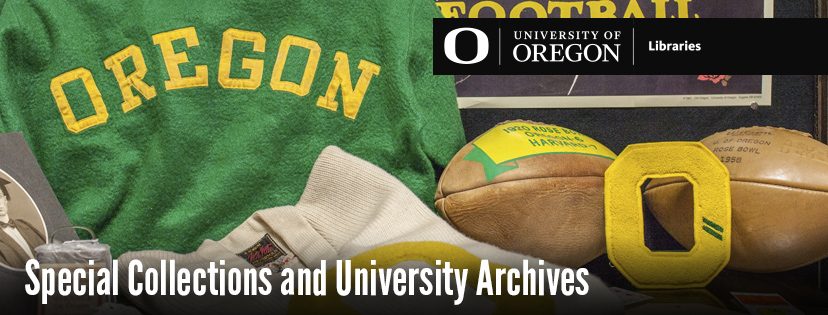2022 Library Undergraduate Poetry Prize Awarded
The Oregon Poetry Association held their annual meeting on Saturday, October 8, 2022, at which time two poetry prizes were awarded at the 2022 UO Library Undergraduate Poetry Prize Winners event. The following comments were made by the co-founders of the Poetry Prize.
David de Lorenzo, Director of Special Collections and University Archives
Soon after my arrival at the UO Library in 2016, I was asked to join Jeff Staiger in the activities of the Oregon Poetry Collection Committee. The OPA collection at the State Library had recently been transferred and, among other things, we needed to finalize an updated Memorandum of Understanding. We were quite excited about the potential of this collaboration to build and maintain a comprehensive Oregon poetry collection in Knight Library. I was personally excited, because of my own life-long interest in poetry. In those Committee discussions, Jeff and I proposed we collaborate with OPA on an Undergraduate poetry prize, and the idea was warmly embraced by the leadership at OPA and at UO.
Jeff and I worked closely with Erik Mueller and Joy McDowell, representing OPA, to hammer out the myriad details of the award processes. It was a great pleasure to engage with such wonderful, supportive OPA members (themselves Oregon poets) to provide deserving undergraduates a tangible show of support for their nascent work. The first prizes were awarded in Fall 2018 in the Library’s Browsing Room as part of a well-attended OPA conference.
As the prize is awarded every other year, we were determined in 2020 to continue it, even in the face of the global pandemic. Sadly, the prize was awarded by email, not at an OPA meeting. Although we are still not back fully to onsite gatherings, I am so pleased to see the prize continue. I extend my hearty congratulations to this year’s award recipients, Amelia Hamerlynck and Mia Vance. (See their winning poems at: https://blogs.uoregon.edu/scua/2022/08/17/2022-library-undergraduate-poetry-prize-winners/)
I wish to thank Jeff Staiger – IL MIGLIOR FABBRO – for his yeoman efforts to herd the UO cats and ensure the poetry prize is awarded. I also want to express my sincere gratitude to the OPA for their continued financial support, and for their vital collaboration. As this month marks the 100th anniversary of Eliot’s The Wasteland, I will end here as I hear him nudging me: HURRY UP PLEASE ITS TIME. HURRY UP PLEASE ITS TIME.
Jeff Staiger, Humanities Librarian
Along with two OPA members and one of our MFA students here at the UO, I was one of the judges of the contest. Doing this is always one of my favorite parts of my job. It’s a pleasure to get to see young poets beginning the interminable wrestling with expression, putting their experience together in their own irreducibly individual ways. It’s also hard – entrants submit up to five poems and even a clutch of twenty contestants yields a hundred entries, a hundred poems in different styles, forms, voices, subject matters, tones, slants… and we live, I think, in a latitudinarian time in which a poem can be good in many different ways. It can make one anxious about the possible anarchy of criteria!
But it’s also exciting, because it’s a chance to think with the other judges and attain a provisional clarity about what one might want from a poem. And every time I’ve participated, we have, after comparing notes and conversing a while, come to a consensus readily enough. It turns out that the criteria are not so elusive after all. Taking this year’s winners as examples, I’m able to say that the poems that stand out have a clear trajectory, a distinctive shape — they take you on a journey in a short compass. At the same time, they show a deliberateness of wording, a feel for sonority and patterning, a metaphorical slyness. They both also entertain compelling subjects and ideas. So, there are a lot of aspects which make them good poems. But these aspects — technique, form, subject, expressivity – exist separately only for the purposes of the analyst. Mainly, they make for an overall cogency that we can enjoy, and that’s what you now get to do [at this poetry reading] …

